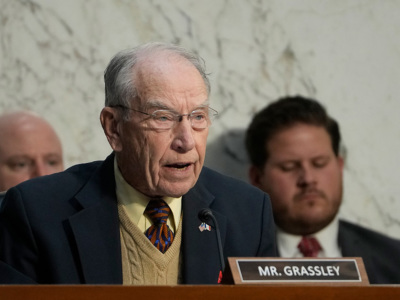The Environmental Protection Agency says it likely won’t finalize the biofuel usage mandates for 2026 until the end of next year, which is discouraging to a sector that blames the existing renewable volume obligations for a collapse in credit prices that has hammered many producers.
The legal deadline for EPA to issue RVOs for 2026 is this Nov. 1, industry officials say. But in the Biden administration’s latest semiannual regulatory agenda, released over the holiday weekend, EPA estimates the 2026 mandates will be proposed next March and finalized in December.
That timetable means the decision could be in the hands of a new administration – if Donald Trump were to win the presidency – one which will have a lot of other issues on its plate.
“EPA could still conceivably meet this year’s statutory deadline if the administration made it a priority,” said Paul Winters, a spokesman for Clean Fuels Alliance America, which represents biodiesel and renewable diesel producers. “There’s no reason the agency couldn’t update, correct and finalize its analysis of 2026 volumes in a timely manner.”
He said that “if any administration chooses to delay regulations, there isn’t a timely process to force them to meet statutory deadlines.”
He also noted that Clean Fuels and other industry groups have appealed to EPA to reconsider the 2024 and 2025 RVOs and have filed briefs in lawsuits against the agency. The agency isn’t considered likely to revise the 2024-25 RVOs.
The RVOs effectively set both a floor and a ceiling in domestic demand for both forms of biomass-based diesel, renewable diesel and biod Sen. Chuck Grassley, R-Iowa (AP Photo/Susan Walsh)iesel, according to economists and industry officials. Refiners comply with the RVOs either by blending the required amount of biofuels or by buying compliance credits known as renewable identification numbers, or RINs.
Sen. Chuck Grassley, R-Iowa (AP Photo/Susan Walsh)iesel, according to economists and industry officials. Refiners comply with the RVOs either by blending the required amount of biofuels or by buying compliance credits known as renewable identification numbers, or RINs.
The Energy Information Administration reported earlier this year that an oversupply of biomass-based diesel and a sharp decline in crop prices pushed one class of RINs from a peak of about $2 at the beginning of 2023 to well under a dollar this year.
Sen. Chuck Grassley, R-Iowa, told reporters Tuesday the delay in the 2026 RVOs would "lead to more plants being shut down, more unemployment, more harm to soybean prices, and with the unemployment in these rural areas it just hurts the entire economy."
He said the delay also won't help Democrats in the November elections.
It's easy to be "in the know" about agriculture news from coast to coast! Sign up for a FREE month of Agri-Pulse news. Simply click here.
Alexa Combelic, a director of government affairs for the American Soybean Association, said the delay in the 2026 RVOs was longer than her group expected.
“EPA has made no secret of the fact that it would likely miss the November deadline to announce RVOs for 2026 and beyond, and RVOs are rarely released so close to a presidential election,” she said.
“However, the outcome remains the same: Missing deadlines creates uncertainty in a marketplace that is already volatile and struggling. The present landscape of the biofuels industry illustrates that the current RVOs are woefully inadequate.”
The delay in the 2026 RVOs comes on top of an expected delay at the Treasury Department in issuing rules for a new tax credit created by the Inflation Reduction Act. The new credit, known as 45Z for the section of the law in which it appears, will replace an existing tax incentive for biodiesel and renewable diesel. The 45Z credit applies to a variety of biofuels and will be variable depending on the carbon intensity of the product.
The result of delays on both the tax credit and RVOs “is serious ambiguity for the future of the entire biofuels value chain, from farmers to processors to producers,” Combelic said.
“Biofuels are an important component supporting the farmgate value of soybeans, and this uncertainty undercuts that support as investors need to know if the new RVOs will help restore the value lost under the current RVOs.”
The administration’s new regulatory agenda also shows EPA will wait until next year to propose a reinstatement of reporting requirements under the Emergency Planning and Community Right-to-Know Act (EPCRA) for air emissions from animal waste on farms.
A Trump administration rule had exempted farms from EPCRA’s emergency release notification requirements but a federal court agreed to remand the decision to EPA in 2022.
EPA estimates it will propose the new reporting rule next April and finalize it in 2026. A new Trump administration likely would have other plans on the issue.
For more news, go to Agri-Pulse.com.


